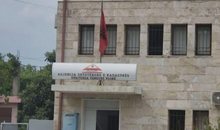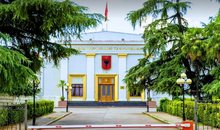
 Flash News
Flash News
NAME/ The assets of the businessman in Gjirokastra are seized! How Berisha denounced him in 2019
Hostage taking in Tirana, 40-year-old man forcibly taken into car
Car catches fire in Tirana
SPAK announces the claim for "Sterilization", seeks 10-year sentences for Klodian Rjepaj and Ilir Rrapaj
Gunfight at the Institute, 7 people involved, one of them arrested
InSight Crime: How Dritan Gjika built his drug "empire" in Ecuador
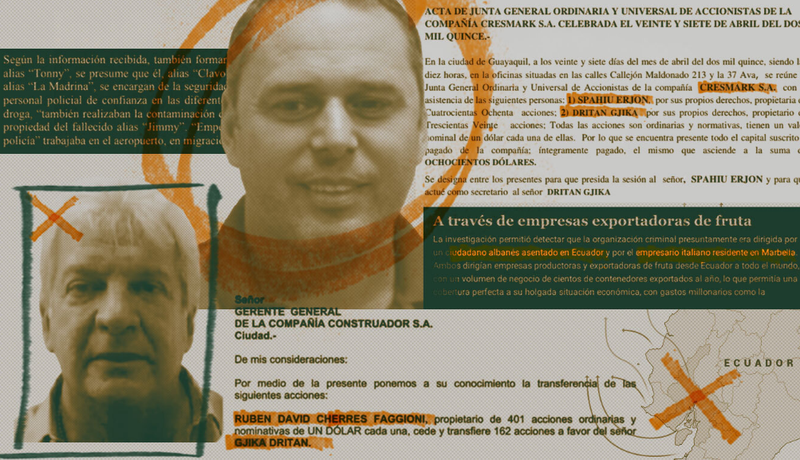
Around midnight on February 6, 2024, Ecuador's National Police raided a beige, two-story villa in an upscale gated community on the outskirts of Guayaquil, the country's largest port city.
Inside, they found a mother and her young daughter, along with numerous firearms and ammunition. Her husband, Albanian businessman Dritan Gjika, was nowhere to be found.
The raid was part of a much larger law enforcement sweep. That night, police in Spain and Ecuador arrested 31 suspected members of an intercontinental cocaine-trafficking syndicate.
Authorities accused the organization of smuggling tons of cocaine from Colombia through Ecuador to Europe and linked network members to seizures totaling more than 9.5 tons of cocaine. After the operation, authorities froze assets worth over $51 million.
Gjika, the alleged leader of the group, is accused of building a sophisticated trafficking operation with the help of influential businessmen linked to the highest levels of government and protected by Ecuador's police chief.
The operation revealed how Gjika allegedly became one of the most prominent Albanian traffickers in the drug trade in Ecuador in recent years. And while a large part of his network seems to have been involved in the bust, Gjika himself remains unclear.
Movement in Ecuador
Beyond the fact that Gjika was born on December 28, 1976, in a city called Shkodër in northern Albania, there are few traces of his early life. In fact, his traces in Albania are very few.
"In Albania, there is no evidence to show his involvement in any illegal activity. No criminal investigation or court case has been registered against him and he has no property or business registered in his name," said Dorjana Bezat, an Albanian journalist who investigated Gjika for InSight Crime.
Gjika went to Ecuador for the first time in November 2009, when he was 33 years old. In 2013, he was granted citizenship and settled in Guayaquil, the beating economic heart of Ecuador. There he began to build his drug trafficking empire.
He was one of the first Albanian traffickers who opened a store in Ecuador, presenting himself as a businessman.
"Gjika is a pioneer in terms of growing upstream and positioning it as a major provider of cocaine," Fatjona Mejdini, a researcher for the Global Initiative against Transnational Organized Crime, told InSight Crime.
Gjika and another Albanian bought an export company called Cresmark SA in 2014 and Gjika was installed as general manager. In the same year, he started a construction company with Ecuadorian businessman Rubén Cherres.
Cherres was no stranger to law enforcement. In 1999, he was arrested on drug trafficking charges after a police raid led to the seizure of 108 packages of cocaine. He was acquitted the following year after several influential figures gave evidence demanding his release, including Danilo Carrera, the brother-in-law of Ecuador's then-president Guillermo Lasso.
In addition to his political connections, Carrera was also well-connected to Ecuador's business and political elites, making him a powerful ally for Gjika's alleged drug-trafficking scheme.
Although it is unclear exactly when Gjika allegedly began trafficking cocaine to Europe, it is clear that he was in the right place when, in neighboring Colombia, the government and the Revolutionary Armed Forces of Colombia (Fuerzas Armadas Revolucionarias de Colombia – FARC) signed a historic peace agreement in 2016. When the FARC demobilized in 2017, the dissidents of the FARC's 48th Front kept their weapons and territories on the Colombia-Ecuador border. Lacking contacts with international buyers, they formed an alliance with Constru, a drug-trafficking network that dominated the routes to the Ecuadorian province of Sucumbíos. Constru connected FARC remnants with international buyers, many from the Balkans, including Gjika.
According to Ecuadorian and Spanish police, Gjika's organization initially trafficked cocaine in bundles of hundreds of kilograms in containers belonging to Gjika's company or other affiliated companies.
In 2018, Gjika apparently tried to grow his business. He bought shares in a second export company, Agricomtrade, which shipped bananas to various European companies.
One of them – the Albanian importer Alba Exotic Fruit – was used to import cocaine into Albania, according to the Albanian public prosecutor. In total, Agricomtrade sent more than 150 shipments to Alba Exotic Fruit.
Instead of getting his hands dirty, Gjika allegedly contracted tasks with a wide network of operatives, communicating with them primarily via Skype.
"He never touched a gram of drugs," an Ecuadorian anti-narcotics police official, who asked to remain anonymous due to security concerns, told InSight Crime. "He was, as they say here in Ecuador, watching the bulls from afar."
Gjika allegedly worked with several coordinators who oversaw the establishment of companies and the recruitment of public officials.
According to Spanish police reports, the organization sourced its cocaine from a supplier in Colombia, who delivered four tons of the drug each month to storage centers in Ecuador. Payments for the cocaine shipments were deposited using bank accounts belonging to a member of Gjika's network, according to Ecuadorian prosecutors. Once the cocaine arrived in Ecuador, Ecuadorian subcontractors handled storage and transportation. Gjika's organization paid these subcontractors with cocaine, according to the anti-narcotics official.
"They paid him 10 kilograms of cocaine and those 10 kilograms were not exported, but redistributed in the country," he said.
In this way, Gjika largely avoided leaving a paper trail that would link him to any drug trafficking activity.
The invisible blood
Through his connections to some of Ecuador's top businessmen and government officials, Gjika built a network that shielded his alleged operations from prosecution.
"He was someone really calculated and very invested in the business world," Mejdini said.
His most important contact, authorities say, was Tannya Varela, who was Ecuador's police chief between March 2021 and January 2022 and is under investigation by Ecuador's prosecutor in connection with Gjika.
Ecuadorian lawmakers alleged that Varela began working with Gjika when she was posted to an airport in Guayas province. She allegedly helped Gjika by placing trusted police officers in key locations to facilitate his drug trafficking operations, they believe.
To ensure the cocaine was taken into Europe, Gjika worked with Mario Sánchez Rinaldi, an Argentinian-Italian businessman based in Spain's Costa del Sol. Rinaldi played a key role in laundering the organization's profits, according to Spanish and Ecuadorian authorities. Together, they had end-to-end control of a cocaine route from Colombia to Europe. InSight Crime contacted Rinaldi's attorney but did not receive a response.
The first cracks
As law enforcement pressure on his operations increased, Gjika appeared to be adapting, changing smuggling methods when necessary.
In 2020, Dutch police seized a shipment of 1.1 tons of cocaine that allegedly belonged to Gjika. In response, Gjika apparently switched from using his own companies to using a method known as rip-on rip-off, in which uncooperative third-party shipping containers are opened and drugs are added. Once the containers arrive at the port of destination, the drugs are removed by gang members, often aided by corrupt port workers.
Gjika's knowledge and contacts in the export sector were allegedly key in this transition. His organization had access to port infrastructure in Ecuador and privileged shipping data, according to Ecuadorian and Spanish police.
In a single day in June 2021, Gjika and Cherres founded eight companies, most in the construction sector. Six of them are under investigation for money laundering. Between 2015 and 2024, the organization laundered at least $31 million through these and other companies, according to Ecuador's public prosecutor.
However, in mid-2021, Ecuador's anti-narcotics police launched an investigation that identified Gjika as the ringleader of a cocaine-trafficking scheme involving Cherres and other Ecuadorian businessmen.
Varela, at that time police chief, seems to have escaped prosecution. It removed investigators from the case in September 2021 and reassigned them to areas across Ecuador. The case was closed months later in January 2022, shortly after Varela was removed from office by then-president Lasso.
In May 2024, Public Prosecutor Diana Salazar revealed the existence of an investigation into Varela and two other police generals for staffing and allowing criminal offenses to go unpunished.
Varela denied allegations of her association with the criminal organization in February. InSight Crime was unable to contact him.
The empire crumbles
Gjika came under increasing scrutiny in early 2023, when a flurry of media reports mentioned his name in connection with a high-level corruption scheme.
On January 9, 2023, the Ecuadorian newspaper La Posta published details about a bribery scheme led by Carrera and Cherres. Meanwhile, Lasso affirmed his support for Carrera.
Then, on 13 February 2023, La Posta published the leaked 2021 police investigation linking Cherres, and by extension, Carrera, to Gjika and his drug-trafficking ring. This revealed Gjika's operations to the public and led to the re-opening of the closed police investigations in January 2022.
And finally, on February 23, 2023, a group of lawmakers led by journalist and then-congressman Fernando Villavicencio released a report with more details on Gjika's ties to drug trafficking. The report also detailed the alleged relationship between Varela and Gjika and claimed that Lasso had known about the links between Carrera, Cherres and the Albanian drug trafficker since July 2021.
The subsequent national uproar placed Lasso under intense scrutiny over his brother-in-law's alleged activities and his government's efforts to cover them up. The investigation into Carrera was reopened and possible links to Albanian drug traffickers contributed to a political scandal that culminated in impeachment proceedings against Lasso. Villavicencio was assassinated months later during his political campaign for the presidency.
Running away from the heat
Gjika reportedly left Ecuador on January 9, 2023, the same day the information was first published by La Posta.
Since then, it is unclear whether he has continued his drug trafficking operations. In March 2023, his long-term business partner Cherres was murdered. Cherres had been a key witness in the court proceedings against the Gjika drug trafficking ring. Carrera is under investigation by Ecuador's Attorney General for running a corruption ring along with Cherres. He did not respond to InSight Crime's request for comment.
Wiretaps released in March 2024 suggest that Gjika may have sought Cherre's death for an unpaid debt.
It also appears that Gjika has sold shares in some of his other companies, including Agricomtrade, to members of his criminal organization. These members have since been accused of laundering money for the Gjika organization through illegal transactions using these companies.
The joint operation in February 2024 dismantled a large part of Gjika's suspected trafficking infrastructure, after many high-ranking members of his organization were arrested. They are currently facing trial for drug trafficking and money laundering in Ecuador.
However, Gjika's economic activity in Ecuador has continued despite his absence. In October 2023, he founded the company Riomel Gold Corporation, dedicated to the trading of precious metals. Riomel Gold is still active as of today, according to Ecuador's business registry. InSight Crime was unable to reach either Gjika or Riomel Gold for comment.
Since the overthrow of Gjika's suspected allies, authorities in Ecuador have not arrested any other major Albanian drug traffickers. But demand for cocaine in Europe remains high, and other transatlantic networks are filling the gap in demand.
Latest news

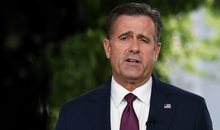
CIA chief: Iran's nuclear facilities 'severely damaged' by recent attacks.
2025-06-25 22:53:09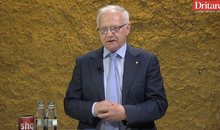
NATO spending to increase by 5%, diplomat: Aims to pull economies out of crisis
2025-06-25 22:32:28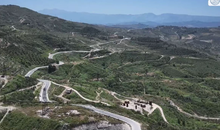

Djegia nga dielli, ja disa mënyra si ta trajotni në kushte shtëpie
2025-06-25 21:56:19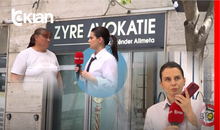

Rama: NATO Summit in 2027 will be held in Tirana
2025-06-25 21:36:35
What is known about the weapons that Serbia has banned from exporting to Israel?
2025-06-25 21:23:19
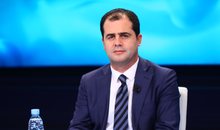
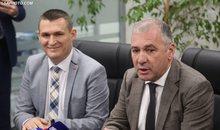
The new war front? Not in the Middle East, but in SPAK!
2025-06-25 20:40:02
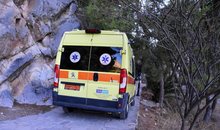
Gjendet e vdekur 56-vjeçarja shqiptare në Greqi! Nënë e 3 fëmijëve
2025-06-25 20:21:03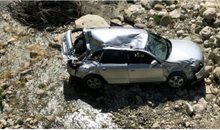
PHOTO/ Car falls off bridge on Peqin-Elbasan axis
2025-06-25 20:11:16
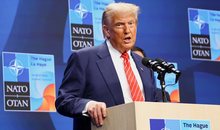
Trump at NATO summit: In recent weeks we have dealt with Kosovo and Serbia
2025-06-25 19:47:10


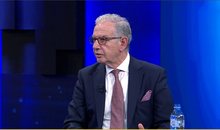
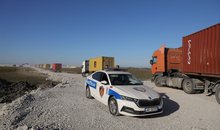

Trump: US to meet with Iran next week, but nuclear deal not necessary
2025-06-25 18:15:22

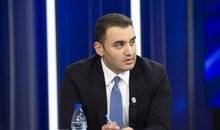


NATO's defense plan, what will change for Albania?
2025-06-25 16:42:07
Bayern loans Albanian talent to German team
2025-06-25 16:32:00
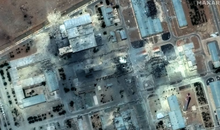
Kremlin: US and Iran disagree on damage caused by attacks
2025-06-25 16:13:55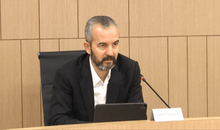
11 maji/ KQZ vulos rezultatin, u jep mandatin deputetëve për 4 qarqe të vendit
2025-06-25 16:00:32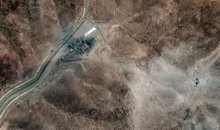
Iran: Nuclear facilities suffered severe damage from US airstrike
2025-06-25 15:49:38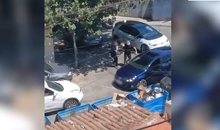
Hostage taking in Tirana, 40-year-old man forcibly taken into car
2025-06-25 15:35:51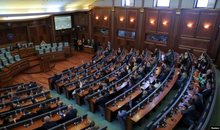
Kosovo/ The constitution of the Assembly fails for the 37th time
2025-06-25 15:24:28
Car catches fire in Tirana
2025-06-25 15:06:53
5 super healthy foods you should add to your diet
2025-06-25 14:57:48
TikTok returns to Albania, one-year ban quietly lifted after three months
2025-06-25 14:49:14


Gunfight at the Institute, 7 people involved, one of them arrested
2025-06-25 14:21:10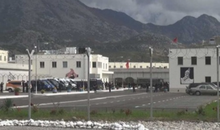
Convict dies in Lezha prison
2025-06-25 14:08:16

ACE Closes Filma24, the Movie Piracy Giant in Albania
2025-06-25 13:44:37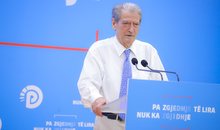

SPAK postpones the investigation against Ahmetaj for the fourth time
2025-06-25 13:12:42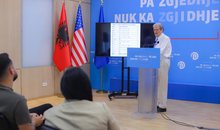

Communication services in Albania cost more than the EU average
2025-06-25 12:55:50
How to choose the right perfume scent according to your personality
2025-06-25 12:44:36

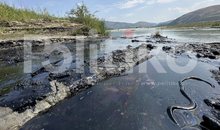


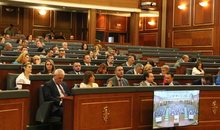
Today is the 37th attempt to constitute the Assembly.
2025-06-25 11:34:23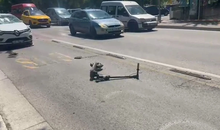
Accident in Tirana, taxi hits two children with a wheelchair
2025-06-25 11:19:05
Some reasons why gossip isn't as toxic as you think
2025-06-25 11:07:51

Selling dope in nightclubs, 33-year-old arrested in Tirana
2025-06-25 10:45:25
The Supreme Court rejects the appeal of Jamarbër Malltez
2025-06-25 10:26:58
The warned cyberattack on Tirana Municipality brings back security concerns
2025-06-25 10:19:43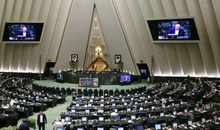
Iranian parliament votes to suspend cooperation with UN nuclear watchdog
2025-06-25 10:03:02
Bosnian fraudster arrested, wanted in Germany
2025-06-25 09:53:10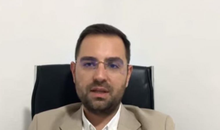
May 11/ Nuri: The vote 'died' before it was cast in the box
2025-06-25 09:42:02
Men with big bellies are at risk of suffering from this problem
2025-06-25 09:37:26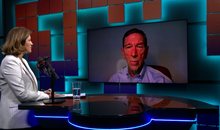

Today, around 28,000 9th grade students are taking the math exam.
2025-06-25 09:19:14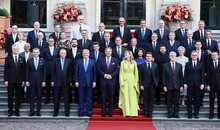
NATO arms itself against potential threats from Russia
2025-06-25 09:03:09
Tourists don't come, Albanians leave!
2025-06-25 08:59:08
TNT explosion in Vlora
2025-06-25 08:38:41
Tourism/ Kosovo "flees" after visa waiver, Poles and Spaniards "get upset"
2025-06-25 08:22:43
Horoscope, what do the stars have in store for you today?
2025-06-25 08:09:54
Ditë me diell, parashikimi i motit, si do të ndryshojnë temperaturat
2025-06-25 07:59:33
Morning Post/ In 2 lines: What mattered yesterday in Albania
2025-06-25 07:45:27

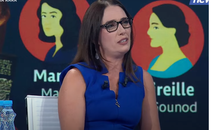
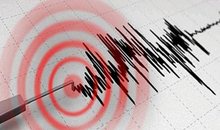
Earthquake tremors felt again in Tirana
2025-06-24 22:11:53

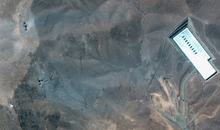
US intelligence: Attacks on Iran did not destroy nuclear plants
2025-06-24 21:30:31
Accident on the Fier-Cekan axis, 3 injured
2025-06-24 21:16:32



Cancer season, what is expected to happen for each zodiac sign
2025-06-24 20:15:54


After ceasefire, Iranian airspace partially reopens to international flights
2025-06-24 19:47:10
Oil prices fall after Israel-Iran ceasefire reached
2025-06-24 19:26:52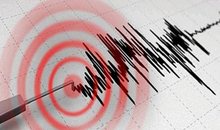
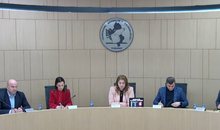

Will Iran participate in the 2026 World Cup being held in the USA?
2025-06-24 18:46:36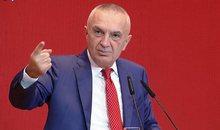
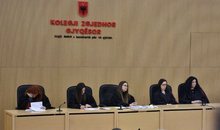
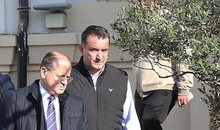
BIRN: Veliaj hires British law firm for defense! Huge sum revealed
2025-06-24 18:20:16
